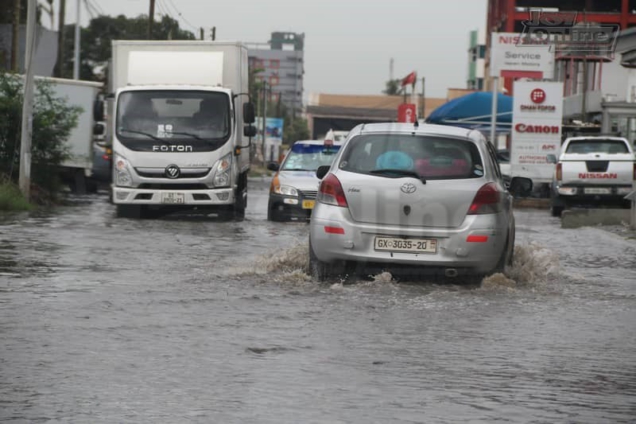In March 2019, Accra launched its first resilient strategy to help strengthen the city’s ability to respond to shocks and emergencies, including flooding.
Key initiatives in the resilient strategy are developing the transportation network towards tackling high traffic conditions, broken trips, increasing travelling time, and pollutions.
In collaboration with my research partner at the Technical University of Munich (TUM), we recently supervised an MSc dissertation modelling Accra’ transportation network to flood resilience.
The findings from the dissertation suggest that Accra’s transportation network is very vulnerable and require hastened mitigation measures to support its goal of becoming a resilient city.
The data used for the study was 1980 to 2017 rainfall data obtained from the Ghana Meteorological Services.
The findings indicated that Accra’s transportation network is significantly impacted by an increase in travel time and broken trips.
In most cases, travel times doubled, and broken trips run up to 40% for even small to moderately heavy rainfall. It is observed that severe flood events can create over 90% broken trips in all instances.
It is also observed that the 3rd June flood disaster that shock the bone of the nation is equivalent to a 10-year return period flooding, suggesting that there is always the possibility (10% per cent change) of this recurring again, probably sooner or later.
Given that flash floods can happen suddenly, leaving little time to react and handle destruction, there is the need to hasten preparedness of priority in strengthening our flood risk management strategy.
PS:
Credit goes Shane Cunneff, who undertook the study on Flood Resilience Modelling of Accra, Ghana’s Transportation Network as part of his MSc in Environmental Engineering at TUM.
The Thesis was supervised by Prof. Dr Jorge Leandro, now at University of Siegen, Germany and myself, Prof. Divine Ahadzie, of the Kwame Nkrumah University of Science and Technology.
Latest Stories
-
US man, 81, charged with murdering Uber driver after both targeted in scam
14 mins -
Tesla pushes for $56bn pay deal for Elon Musk
27 mins -
Toronto gold heist: Police arrest alleged gun-runner linked to C$20m airport theft
34 mins -
Dubai airport chaos as UAE and Oman reel from deadly storms
37 mins -
Akufo-Addo commissions Anwomaso 1 Thermal Power Plant in Kumasi
1 hour -
Change MASLOC into a digital lending platform – Citizens Movement against Corruption
2 hours -
Ghana’s Sports Minister proposes three interventions to combat climate change
5 hours -
Family of K.K Kabobo announces date for observance service
5 hours -
Unemployed Environmental Health graduates protest in Tamale
6 hours -
Dancer Championrolie named brand influencer for Tecno Camon30
7 hours -
Election 2024: National Peace Council cautions the clergy against spiteful comments
7 hours -
One person arrested in connection with robbery attack on UENR students
7 hours -
Basketmouth touts Dave Chappelle ‘comedy god’
7 hours -
It’s a shame ‘galamsey’ issues no longer make headlines – Sir Sam Jonah slams Ghanaian journalists
7 hours -
Stay original; don’t take anybody’s material – Basketmouth to comedians
7 hours

